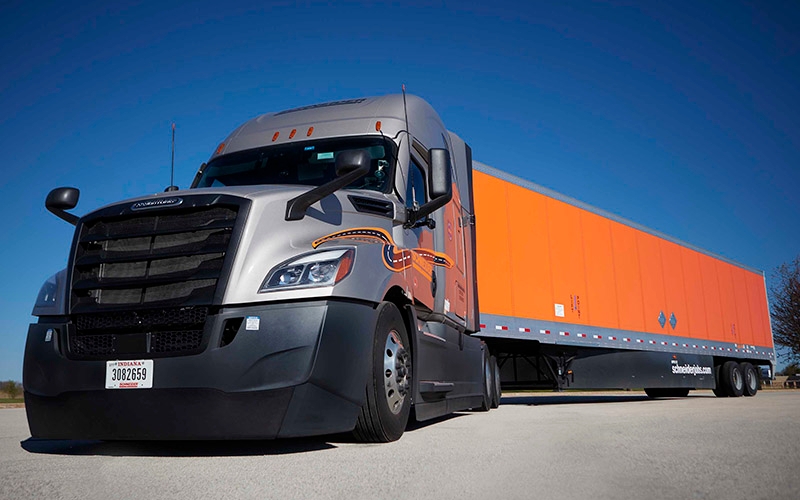In the realm of automobiles, there are numerous terms that have intriguing origins. One such term that often piques curiosity is the word “truck.” Why exactly is it called a truck? Join us on a journey through time and language to uncover the fascinating story behind this common yet enigmatic term.
Introduction
Before delving into the etymology of “truck,” let’s take a moment to appreciate the ubiquity of these vehicles in our daily lives. From transporting goods across vast distances to serving as essential tools in construction and agriculture, trucks play a vital role in modern society. But have you ever stopped to wonder why they’re called trucks?
Why is it called a truck?
The term “truck” has its roots in the early 17th century, where it initially referred to the small wheels or rollers used to facilitate the movement of heavy items. Over time, this term evolved to describe the wooden frames on which goods were carried—a precursor to the modern cargo bed found in trucks today.
The evolution of the term
As industrialization swept across the globe, the need for efficient transportation grew exponentially. With the advent of motorized vehicles in the late 19th century, the term “truck” seamlessly transitioned to describe these self-propelled machines designed for hauling goods.
Early usage in automotive industry
In the early days of automobiles, trucks were often referred to as “motor trucks” to distinguish them from passenger vehicles. These early trucks featured rudimentary designs and were primarily used for local deliveries and industrial purposes.
Standardization of the term
As the automotive industry matured, the term “truck” became standardized to describe any motorized vehicle primarily designed for transporting cargo. From pickup trucks to tractor-trailers, the term encompassed a wide range of vehicles tailored to various hauling needs.
Why is it called a truck?
So, why exactly is it called a truck? The answer lies in its utilitarian nature. Unlike cars, which are primarily designed for personal transportation, trucks are built to carry heavy loads and withstand rugged terrain. Thus, the term “truck” aptly captures the essence of these versatile vehicles.
Versatility in design
One of the defining features of trucks is their versatility in design. Whether it’s a flatbed truck for transporting construction materials or a refrigerated truck for delivering perishable goods, these vehicles come in a myriad of configurations to suit diverse transportation needs.
Adaptability for various industries
From agriculture to retail, trucks play a crucial role in facilitating commerce across industries. Their ability to transport goods efficiently and reliably makes them indispensable assets for businesses large and small.
Influence on language and culture
The prevalence of trucks in modern society has had a significant impact on language and culture. Expressions like “truckload of work” or “trucking along” have become ingrained in everyday speech, reflecting the pervasive influence of these vehicles on our lives.
Why is it called a truck?
As we reflect on the journey of the term “truck,” it becomes evident that its evolution mirrors the advancements in transportation and commerce throughout history. From humble beginnings as wooden frames to sophisticated vehicles powering global supply chains, the term “truck” encapsulates centuries of innovation and progress.
Continued relevance in the digital age
In today’s digital age, the importance of trucks remains undiminished. With e-commerce driving demand for rapid delivery services, trucks continue to serve as the backbone of global logistics networks, ensuring goods reach their destinations swiftly and efficiently.
Integration of technology
To meet the evolving needs of modern commerce, trucks are increasingly incorporating cutting-edge technology. From GPS tracking systems to autonomous driving capabilities, these advancements enhance efficiency and safety while paving the way for the future of transportation.
Environmental considerations
In addition to technological innovations, there’s a growing emphasis on sustainability within the trucking industry. Manufacturers are developing electric and hybrid trucks to reduce carbon emissions and minimize environmental impact—a testament to the sector’s commitment to responsible stewardship.
FAQs about trucks
- What are the different types of trucks?
- Trucks come in various types, including pickup trucks, semi-trucks, dump trucks, and tanker trucks, each designed for specific hauling tasks.
- How do trucks differ from other vehicles?
- Unlike cars, trucks feature a separate cargo bed for transporting goods, along with a robust chassis capable of carrying heavy loads.
- What role do trucks play in the economy?
- Trucks are essential for transporting goods between manufacturers, distributors, and retailers, facilitating economic growth and consumer access to products.
- Are there any safety considerations with trucks?
- Safety is paramount in the trucking industry, with regulations governing driver hours, vehicle maintenance, and load securement to prevent accidents and injuries.
- What does the future hold for trucks?
- The future of trucks is poised for innovation, with advancements in automation, electrification, and connectivity shaping the next generation of transportation solutions.
Conclusion
In conclusion, the term “truck” may seem simple on the surface, but its origins and evolution are rich with historical significance. From its humble beginnings as a term for small wheels to its modern incarnation as a symbol of transportation and commerce, the word “truck” encapsulates centuries of human ingenuity and progress. So, the next time you see a truck rumbling down the road, take a moment to appreciate the journey that brought it to where it is today—and ponder the endless possibilities that lie ahead in the ever-changing landscape of transportation.
